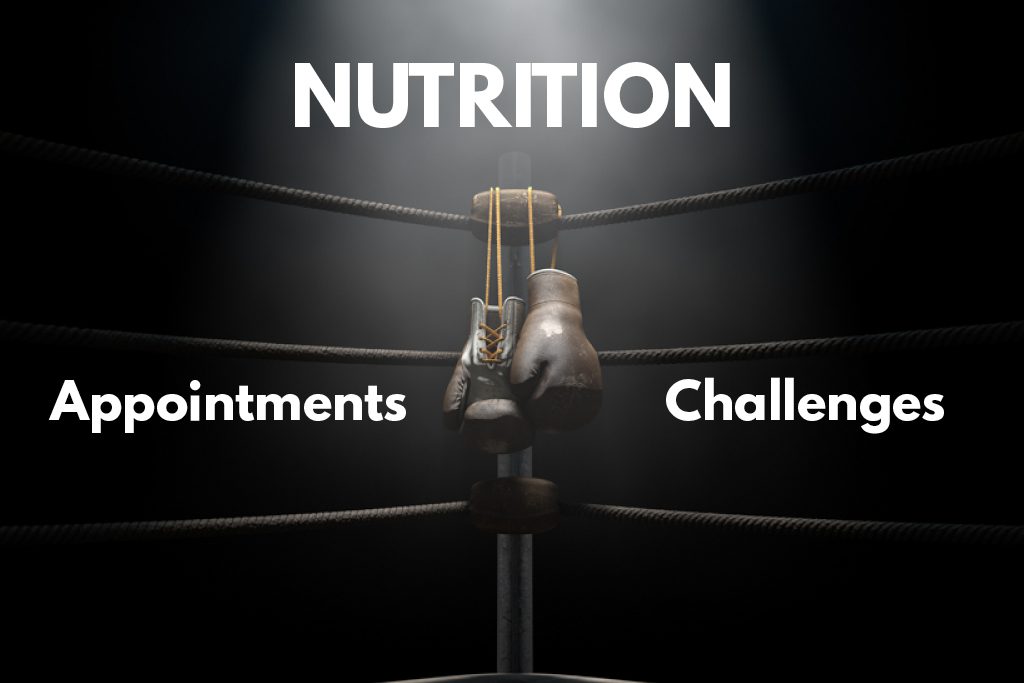Launching a nutrition coaching service at your gym really comes down to one question:
What do my clients need?
Over the last 30 years, personal trainers have sold nutrition coaching as part of their packages. Some of the best have even sold their services in eight-week blocks called “challenges” or something else. They did it this way because they realized their clients would adhere to a plan better if it had a firm endpoint. Their success didn’t start with the question “What can I sell?” or “What can I get away with charging?” but “What do my clients need?”
Your clients need nutrition coaching. But how much? And when?
Nutrition Challenges
Pros
Challenges get your clients excited. And more clients stick to a challenge than to a traditional “diet” because a nutrition challenge has a fixed endpoint. It’s easier for a client to say “I can hold off for one more week!” than “I can give up chips forever.”
Challenges can also teach clients good habits—even if it’s just paying attention to what they eat.
Most importantly, challenges do get some results. Counting macros, fasting intermittently or even giving up carbs—any one will help people lose weight. And if they need a bit of encouragement to keep going, fast results can provide it. Motivation precedes success.
Cons
Nutrition challenges usually don’t produce lasting changes or results. I can remember several “Paleo challenges” at Catalyst where clients “celebrated” their success by going out for wings and beer. And yes—I was with them.
Challenges can also potentially sabotage long-term results. Five years ago, when gyms frequently offered “nutrition challenges” to their members, many of their clients would wait for the next challenge instead of fixing their nutrition right away. In trying to help their members, the gyms ultimately undermined their services.
When to Use
Use a nutrition challenge when your nutrition service is new—or when your clients are.
New clients can kick off their memberships, get fast results and get excited about your service with a challenge.
And when you launch your nutrition service, a challenge is a good introductory way to get clients excited about it. Like any product launch, a big kickoff will help you get some momentum.
But if you want to get your clients results, every nutrition challenge should lead to ongoing nutrition appointments.
Ongoing Nutrition Appointments
Pros
Clients form long-term habits that lead to long-term success.
Clients can also be guided toward a sustainable, lasting program instead of a binge diet they can’t sustain forever.
Coaches can alter a client’s program when results slow down instead of waiting and praying for a client to ask for more help with his or her diet.
Cons
Accountability isn’t sexy for the client or the coach. Check-ins can become routine. And as the coach and client become friendlier, the client might figure out “what I can get away with” instead of what he or she needs to do to be successful.
Remember when everyone at your gym went Paleo? After the first two months, someone figured out how to make “Paleo brownies,” right? Well, it happens with every diet. But this is a tiny tradeoff: Keeping clients on a plan for two years will make a huge difference in their lives, while having them give up carbs for four weeks won’t.
When to Use
Forever.
Whether you own a gym or take PT clients at Gold’s, your coaching practice requires you to stay in constant contact with your clients. The best way to do that is to sell hybrid memberships that include nutrition coaching and exercise coaching.
Other Media in This Series
Why You Need a Nutrition Program
Hybrids Are the New Normal
Mike Doehla: Why Nutrition Coaching Isn’t Always About Food

